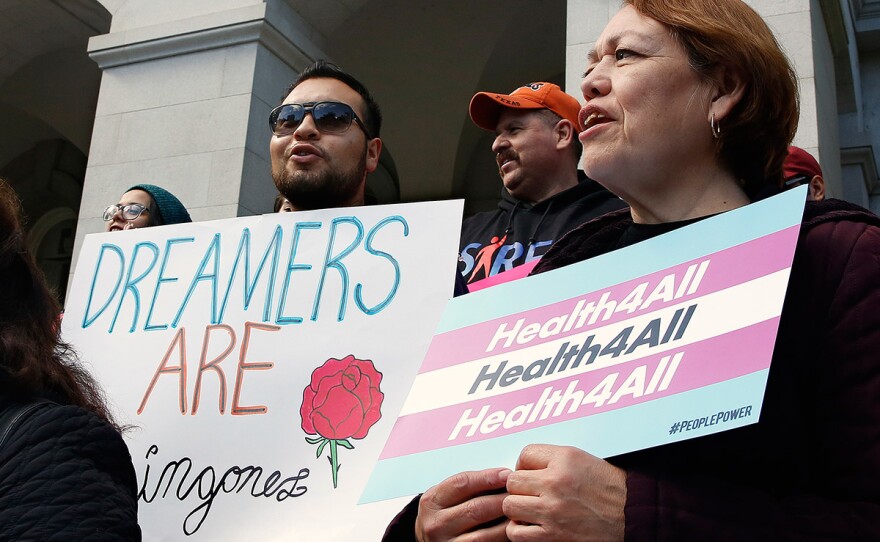About 40,000 low-income adults living in the country illegally won't lose their government-funded health insurance over the next year under a new policy announced Monday by California Gov. Gavin Newsom's administration.
California already pays for the health care expenses of low-income adults 25 and younger, regardless of their immigration status. A new law scheduled to take effect in January 2024 would extend those benefits to cover all adults who, but for their immigration status, would qualify for the state's Medicaid program.
But between now and when that new law takes effect in 2024, about 40,000 young adults who already have Medicaid in California are expected to lose their benefits because they are older than 25. Monday, the state Department of Health Care Services announced it would continue to cover those young adults through the end of 2023 to make sure they won't lose their benefits.
“Providing continuous coverage means that tens of thousands of young Californians won’t face a disruptions in care, keeping them covered and healthier as a result,” said Jose Torres Casillas, policy and legislative advocate for Health Access California, a consumer health care advocacy group. “California is again leading the way in making our health care system work better for all communities, regardless of income, age, or immigration status.”
Nationwide, about 22.1 million people were living in the country illegally in 2020, or about 7% of the population, according to the Kaiser Family Foundation, a health care nonprofit. These people are not eligible for most federal public benefit programs, even though many have jobs and pay taxes.
Some states, including California, have used their own money to cover the health care expenses of this group. Eighteen states provide prenatal care to people regardless of their immigration status, while five states and the District of Columbia cover all children from low-income families regardless of their immigration status. California and Illinois recently made older adult immigrants eligible for their Medicaid programs.
California was the first state to pay for the health care expenses of some adults living in the country illegally when, in 2019, state lawmakers voted to make people 25 and younger eligible for Medicaid regardless of their immigration status.
That policy took effect in 2020, right when the COVID-19 pandemic started. The federal government issued a public health emergency, meaning no one could lose their Medicaid benefits. That's why lots of young immigrants in California have been able to stay on Medicaid, even though they are now older than 25 and are technically no longer eligible.
The federal public health emergency is expected to end soon. When it does, all of those young adults who are now older than 25 would lose their benefits once they came up for renewal. Instead, the Newsom administration said it would delay those renewals until the end of 2023, giving them time for the new law to take effect.
“Protecting these young adults–who currently have Medi-Cal–from losing coverage, only to become eligible again shortly thereafter, will prevent needless gaps in health care services and medication that people need," said Connie Choi, policy director at the California Immigrant Policy Center.
-
U.S. and Mexican officials hope the new Otay Mesa East Port of Entry will shorten long wait times at the San Diego-Tijuana border when it’s open in 2024.
-
Local advocates say the U.S. is not doing enough to help Afghan women under threat from the Taliban. In other news, officials broke ground Monday on a project to create a second border port of entry in Otay Mesa.







